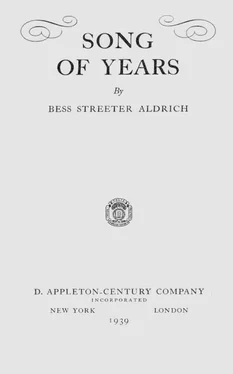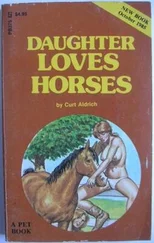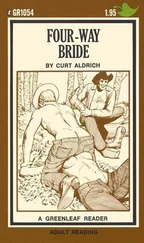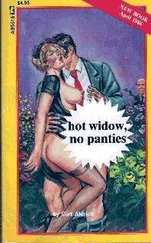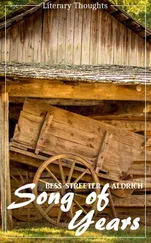While he was talking and making fun of the people who had been so afraid, as though he were the only one who was not, Suzanne looked over at Wayne Lockwood. He was standing at the side of the fireplace listening to Mr. Cady Bedson’s belittling of every one, and grinning as though to himself. It was a queer grin and just as sure as though he had told her in plain words, Suzanne knew that Wayne Lockwood did not like Mr. Cady Bedson.
As the days passed, more news filtered into the neighborhood about the Indian scare. The people of Janesville which lay up beyond Sturgis Falls had plowed ditches around the little settlement and made a rude stockade. Some young blades in Prairie Rapids had indulged in a noisy charivari for a newly married couple and the noise had so frightened one man who thought the Indians were massacring the people that he had thrown his most cherished possessions into his wagon, including his wife and children, and galloped away, giving the alarm as he rode. It had taken much explanation to get him to believe that he had heard a charivari instead of the noise of Indians at their scalping, and much persuasion to get him to return.
A company of volunteers had gone from Sturgis Falls clear up to where the Winnebagoes were camped and run down the source of the rumor—a white boy and an Indian had really exchanged shots, and while there was no need for all that excitement, the episode might have ended in more serious results. When the company came back they rode into town at breakneck speed, firing their guns and trying to make much of the affair, one man riding his steed into the Carter House and around the stove in high spirits, largely because of the “spirits” he had acquired on the trip.
Jeremiah Martin, sitting at the head of the long table, his knife and fork held perpendicularly from the bases of his two big fists, made much of the episode: “There’ll always be hot-headed people in this country as long as she exists. And the level-headed folks might as well get used to havin’ to clean up the messes that the fly-off-the-handles make. A hundred years from now there won’t like as not be any Injun scares . . . maybe no Injuns even . . . a body can’t tell. But they’ll be somethin’ else. Hot-heads will be kickin’ up a lot of dust of some kind or other and level-heads’ll be doin’ their best to settle it. You can just mark my word and see if I ain’t right.”
“But how can we mark your word, Pa, and see if you’re right that many years from now?” Suzanne asked.
“By granny!” He was thoughtful. “I will be deader’n a doornail, won’t I? Funny, how you just can’t believe that you won’t live always and see how the new state and the country and everything pulls through. Biggest affirmative argument I know in favor of ‘If a man die, shall he live again?’ is just the way you feel inside you that nothin’ can stop you from livin’ on. Why, did you children ever stop to think you can’t do away completely with anything? That fiddle of Phineas’ was once a tree—wind makin’ music in the top of it. Cut down that there maple tree outside the lean-to door, burn the trunk to ashes, and Ma’ll up and leach the ashs for lye. Scatter the leaves and they’ll make winter mulchin’. Seeds that have been shook off will come up. No, sir, if you can’t kill that old maple you ain’t goin’ to be able to kill me. I’ll be in somethin’ a hundred years from now, even if it’s just the prairie grass or the wind in the timber or the wild geese ridin’ out the storm.”
Because the Indian scare had gone into nothing, Suzanne’s avowal never again to go down near the slough alone went into nothing, too. And as the rumors died down gradually her temporary fright over being far from the house by herself had left entirely by a later July Sunday, so that after dinner she slipped away to her favorite haunt.
It lay to the south and west of the house, this cut in the timber containing a large slough, perhaps forty or fifty acres of greenish water, with great patches of wild rice at its edge, making it a gay summer resort for animal life—swans, wild ducks, wild geese, mud hens, muskrats, and minks. There were various species of herons, too, the bittern which the Burrills called a “stake-driver” and the Martins called the “pump bird.”
Occasionally on a clear day when Suzanne had heard hoarse throaty sounds above her, she had distinguished cranes up in the blue sky, and watched them circle in a queer flight as they rose higher and higher, making a gigantic hoop-skirt out of their flying.
It had given her a queer longing to do it, too—the impossible to which humans would never attain—to rise up in the air and look down on all the Red Cedar Valley. Sometimes these sandhill cranes with their long, lean necks and long, thin legs would land a little totteringly in the grassy clearing near-by like old men grown uncertain of their movements. Once Suzanne had seen one run all the way across the clearing, its outstretched head and slim body looking so funny on those thin legs, as though it were running stiffly on stilts, that she had rolled in the grass to laugh and think that no wonder Pa was always telling about some one running like a sandhill crane. And once in the springtime she had glimpsed a big flock of them stepping about foolishly, acting like the Indians at their dance up at Turkey Foot Forks and had told about it at the table. Everybody had laughed at her, but Pa had said to answer a little girl right, that the cranes were courting and mating, and he’d thump anybody making fun of her.
Close to the slough was a circular open patch of ground where the prairie-chickens assembled, leaving always a watcher or two at the outer edge of the sociable circle to give the alarm if the enemy approached. The booming notes of the cocks could be heard up at the house and far across the prairie.
All day long redwing black birds, kingfishers, snipes, kill-deer, bobolinks, chewinks, brown thrushes, grackles, and dickcissels came and went through the green undergrowth by the brackish water. Prairie larks flew out of the grass with gay abandon, and dragon-flies, the gauzy-winged snake-feeder, darted over the water on ceaseless hurrying errands. From the near-by timber phoebes and mourning-doves called, and woodpeckers knocked all day on maple and walnut doors through which they were never admitted. The ducks and geese would go away on some unknown foraging trip in the daytime but at sundown they would come flocking back to the slough to spend the night on the water, and a little later hawks would dip low with their hollow boom.
In the marshy grass a queer orange-colored tiger-lily bloomed, from whose stamens one could get a reddish-brown powder to color one’s cheeks, and back from the marsh grass grew the bouncing-Bets and the wild sweet-williams, daisies and soapwort. Down deep in the damp timber for long months one could find Dutchman’s-breeches, violets, columbine, shooting-stars, anemones, wild crab-apple blossoms, the heavily scented waxen Mayflower, and the very loveliest flower of all, the blue-bells. The color of a bed of bluebells in an open patch in the timber was so beautiful it hurt you.
That was another thing Celia never could understand. “Of course, it’s pretty,” she would say, “but it doesn’t hurt you. You’re touched in the head.”
But Suzanne knew better. It was true, no matter what Celia said—somewhere down in your throat their beauty hurt you.
This afternoon was hot. But, then, it had been that way all summer—Pa said the hottest of the three since they came. The folks were always talking about the weather, this was the hottest summer or the rainiest fall or the coldest winter or the worst snow-storm. The weather was like some one human, but neither a man nor a woman, just “it.” “It may turn off cooler.” “It will be better for threshing.” This afternoon she was tired of the folks’ talk, with the Mansons and the Akins all sitting around the tree-trunk steps and discussing the weather, making guesses as to what day Henry would get home from his trip to Dubuque, saying that Prairie Rapids was being platted and was already having the gall to want the court records over there, that the surveying for a railroad out of Davenport on the Mississippi was under way, that there was even talk of some day one west of Dubuque out here along the old trail, and Pa saying his everlasting: “A shame Ioway hasn’t no railroads yet—pesky shame! Just you wait till she gets railroads.” That was another funny thing—the weather was “it” but the state was “she.”
Читать дальше
